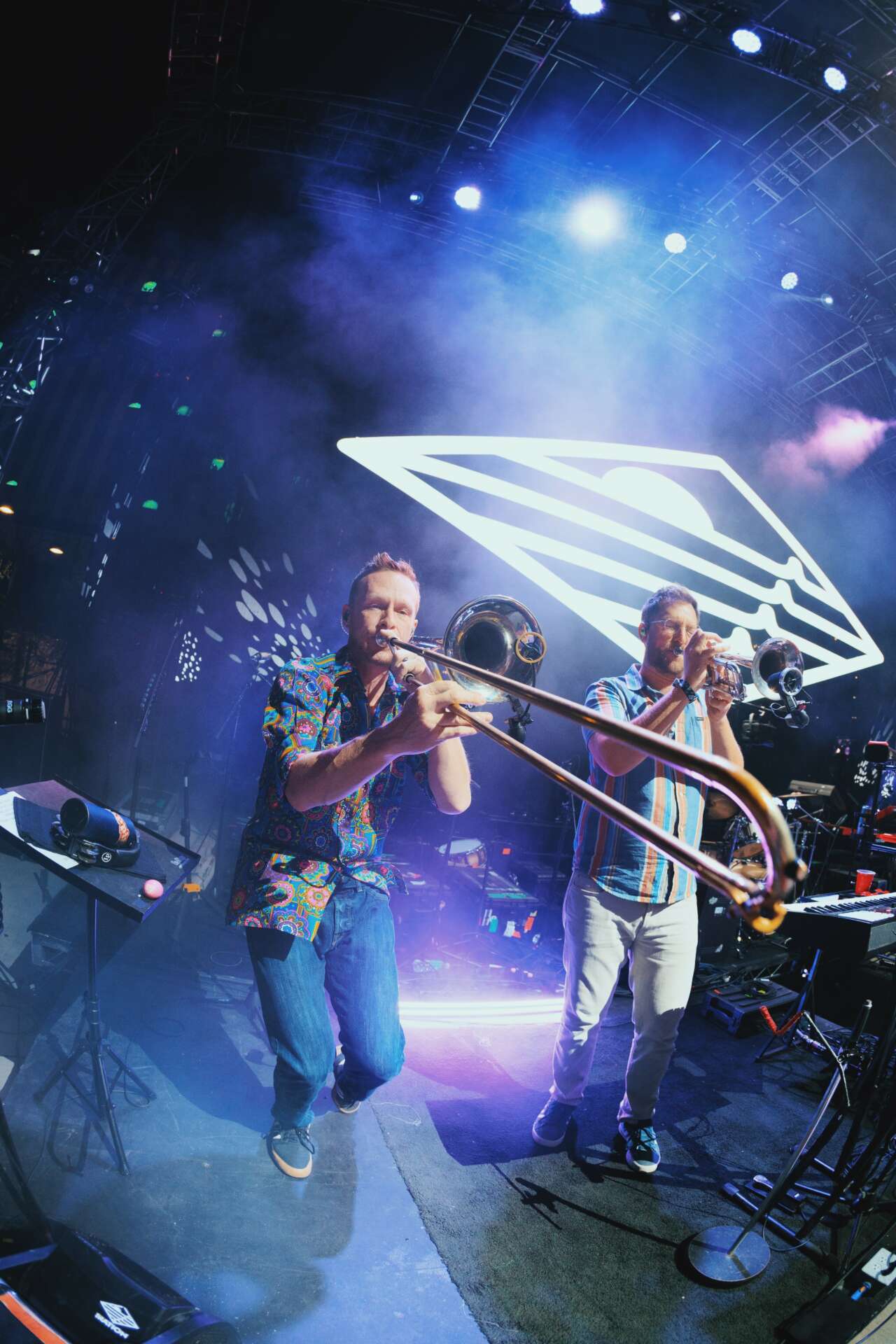We were lucky to catch up with Tony Rinaldi recently and have shared our conversation below.
Tony, appreciate you joining us today. Learning the craft is often a unique journey from every creative – we’d love to hear about your journey and if knowing what you know now, you would have done anything differently to speed up the learning process.
Common sense learning in the real world vs. standardized educational learning.
When you are introduced to the musical world it usually comes in a standardized classroom setting especially when it comes to the arts. As an instrumentalist specifically, standardized musical education circles around either classical music or jazz. This is the standard in public school settings both collegiate and pre-collegiate levels.
By standardizing music, it creates a sense of dis-attachment to the emotional aspect of creating and performing music. For instance, a musician that comes out of music school, in a public school setting, expects certain things to be calculated and precise. The idea of 100% free thinking musician has been desecrated by pre determined standards in an educational environment. There is this mentality that if Fred does A and B then the only result will be C. When in reality if you do A and B and only put 60% effort into this you raise the probability of failure. A different mental approach could be, if you have learned how to master A and B fundamentally but if you apply your knowledge 100% into an emotional artistic outlet your result could end up being A + B = 4. This is the beauty of uninhibited emotionally focused art. 4 may not be the standardized answer but it is NOT incorrect.
There is no way to standardize art, you can be taught in an educational setting but the best teacher of all is failure. Educational settings are designed to make you succeed. This setting gives you the tools, supportive peers, and a supportive engaged leader who has experience in this subject. You will never again find this engaged educational setting anywhere else in day to day life. That is, unless you are one of the privileged few who can pay for it.
The classroom is strictly for understating and mastering the fundamentals of being able to become a successful artist. Failure in the classroom is scrutinized and looked down upon when in the real world, failure is the best tool to grow and reflect. We should embrace the failures as much as the wins, and in all honesty if we, as artists, reflect on our failures more than our wins we would be much more successful and find the truest form of our art. More frequent small failures lead to less frequent but bigger wins. Art is learned failure.
I have one particular story that stands out distinctly in regards to classroom learning and real life learning. The first professional tour I went on was in 2012. I went straight from graduating to starting my first tour in NYC a month later. I played a whole headline tour for 4 weeks in the US before flying to Europe for another 4 week tour. For the first tour I played with no knowledge of per diems, up-charging for promotional gigs, the difference between a weekly rate, day rate, and show rate. Needless to say I was being taken advantage of. The manager and I were great friends but he knew he was able to squeeze me for money, as a manager should, and I was completely oblivious to it.
The next tour I played was in Europe and the horn player I had the privilege of sharing the stage with for this tour enlightened me to what a proper pay scale is, the difference in weekly rates and day rates, etc… There are no hard feelings, but after I brought this to the attention of the manager he willingly paid me what I deserved. I had to ask for it first though. This is called real world learning and I learned this through failure. They don’t teach you in the classroom about these kind of scenarios and you have to value your own self worth to ask the hard questions and take care of yourself. I had to fail and lose out on a lot of pay to learn how much I am actually worth in the end. Failure, yet again, has proven to be my best teacher. I have never made that mistake again. You only make a mistake once. Whether you repeat the mistake is up to you. Will you form a bad habit or will you learn and grow?
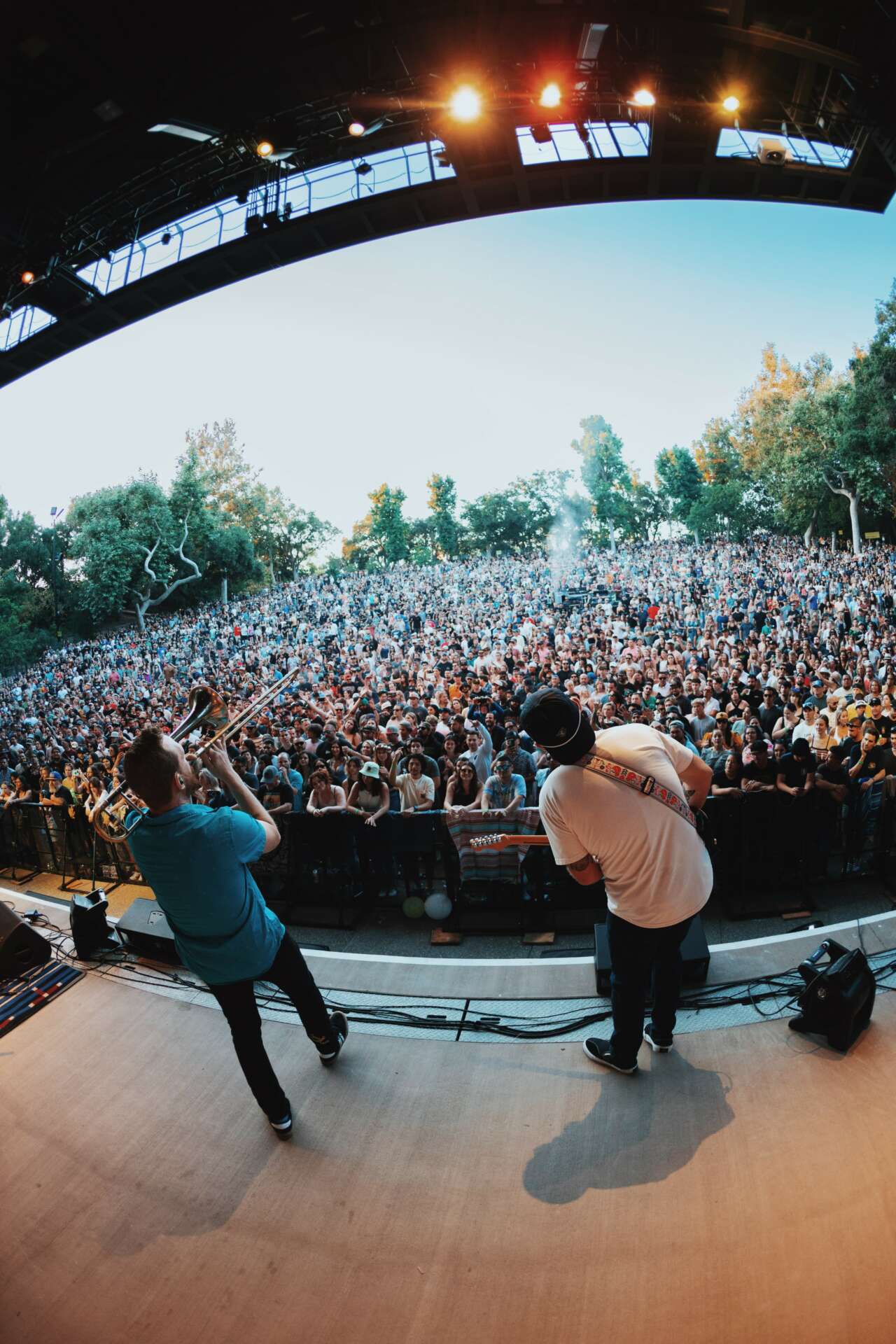
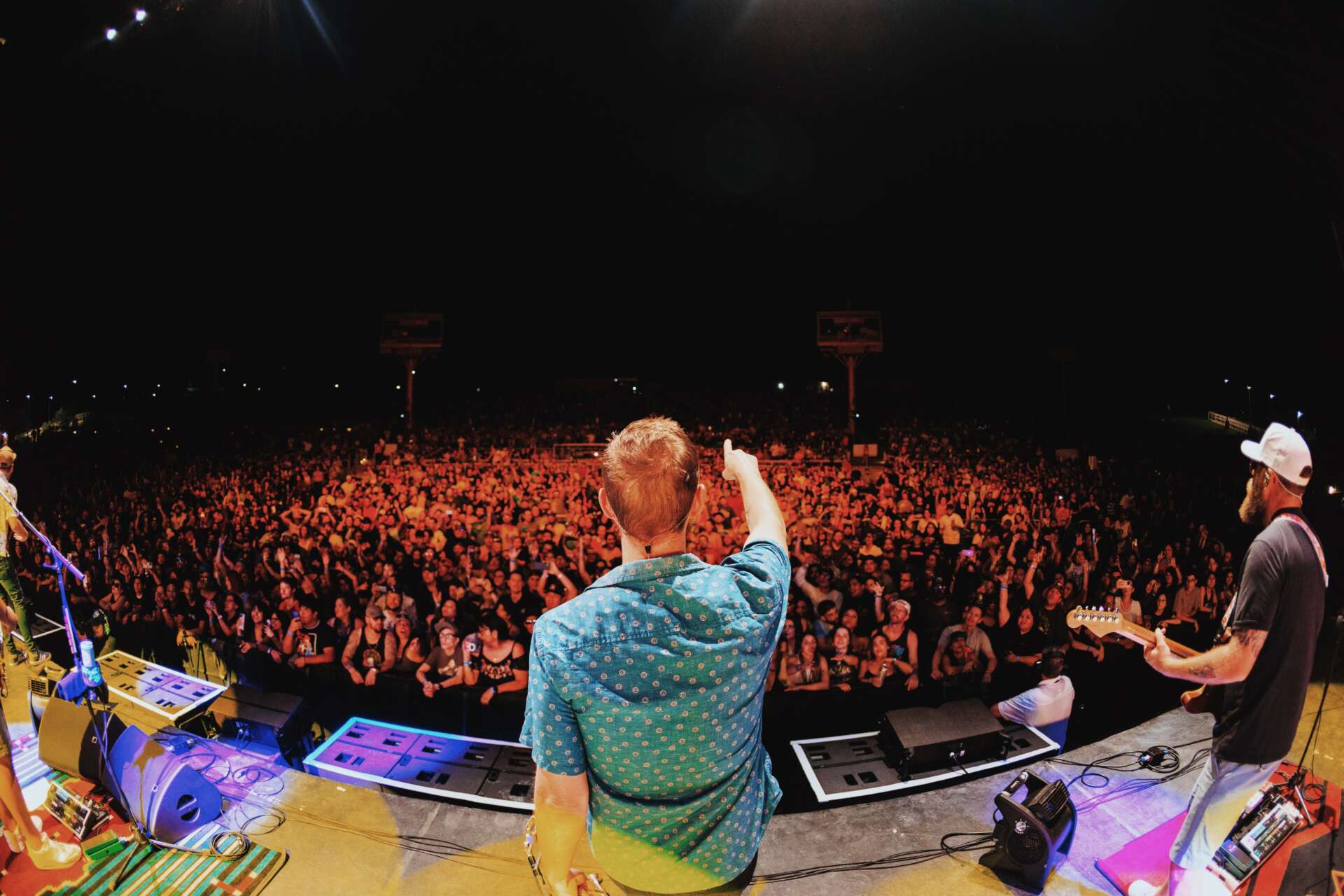
As always, we appreciate you sharing your insights and we’ve got a few more questions for you, but before we get to all of that can you take a minute to introduce yourself and give our readers some of your back background and context?
I have always been drawn to music ever since I was a kid. I grew up singing alongside my family in the church choir. After internalizing all of the repeated vocal melodies I learned how to harmonize with them around the age of 4. I tried to play the guitar at the age of 7 but found the piano a much more natural fit. After 3 years of playing the piano I picked up my fathers old trombone. The trombone has always been a very easy instrument for me. My father played before me and so I had a natural talent for the trombone. I kept playing trombone through high school. In my senior year I placed well in regional bands and realized I possessed enough talent to give me a shot at playing the trombone for a living. After studying trombone at the University of New Mexico for three years I decided to pursue a career in music in Los Angeles a city specifically structured for entertainment. I ended up at the California Institute of the Arts in 2008 where I earned my bachelors degree in music performance, trombone focus. The rest is history. Music has, and always will feed my soul.
I personally feel that I have had a calling to perform music for people. Music provides certain things for people that you can’t hold in the palm of your hand. Music provides a direct tap to the source of our deepest emotions. It allows us to express and feel what words can not. We connect more deeply with music than we do with our family at times. Music evokes a wide array of deeply complicated emotions and when we listen to music as humans we find the healing and emotional comfort we need as the complicated individuals that we all are.
As a performer I have a duty to provide that emotional connection in the most real way possible. You can’t hold the music but you can watch the people that create this music and feel an even deeper emotional connection and bond. In this way, MUSIC HEALS. I provide a place of comfort for people to heal and connect with their emotions. Whether that means you listen to EDM to workout, or if you listen to reggae to smoke weed and watch a sunset. Music enhances this “experience.” I have been chosen to create and perform for people and provide this “experience.” Whether you listen through your headphones to music I have created or have watched me perform live, you have connected with my soul and lived this “experience.”
As rewarding as it is for the listener or concert goer, I am also greatly rewarded by seeing the smiles on faces and reading the messages from people thanking me for what I provide.
Speaking in much more specific cases I have my own private studio where I have taught a wide array of musicians. From trombone, bass, beginning piano, etc… I have a wide knowledge of music and when it comes to learning the basics I’m very good at providing a solid foundation on piano for anyone wanting to dive into playing and writing music.
My teaching style is drastically different from most traditional methods of music pedagogy. Music, like humans, is highly complicated and can be learned in many different ways. I truly believe that everyone learns differently, and this is especially true when it comes to the arts. It is NOT cut and dry. I find what motivates my student to seek me out and learn. At time too, they may not know themselves, but if the fire is there and the work is put in I will happily explore these musical endeavors.
I started with a student on bass. Over a few years I taught him the fundamentals of playing music on bass and how to play different styles of music. We worked for a year on nothing but playing the bass but after this first year he started to lose interest. I asked him what he wanted to do and together we figured out that he wanted to pursue a career in music engineering. I took what he knew from playing the bass and had him learn how to record himself and others. We recorded three to four songs together with me playing the trombone and trumpet and him playing the bass and random percussion. Inevitably I learned a lot about recording myself and my student ended up going to a private music school where he is pursuing a career in audio engineering.
Find where the fire is burning and add fuel to the fire. Never form a rigid structure to teach because you will inevitably put out the fire that stokes the interest in the arts. If you are more emotionally intuitive with your students, they will want to learn thus making the process of teaching and learning fun and educational for both the student and the teacher.
When you hear me on stage, recorded, acoustic, anything that I have ever done that work is 100% from my soul. I have never and will never sacrifice the quality of my music I perform, record, write, etc…. This quality of work directly applies to my teaching method as well. There is no deception in my art, it resonates with the truest from of myself.
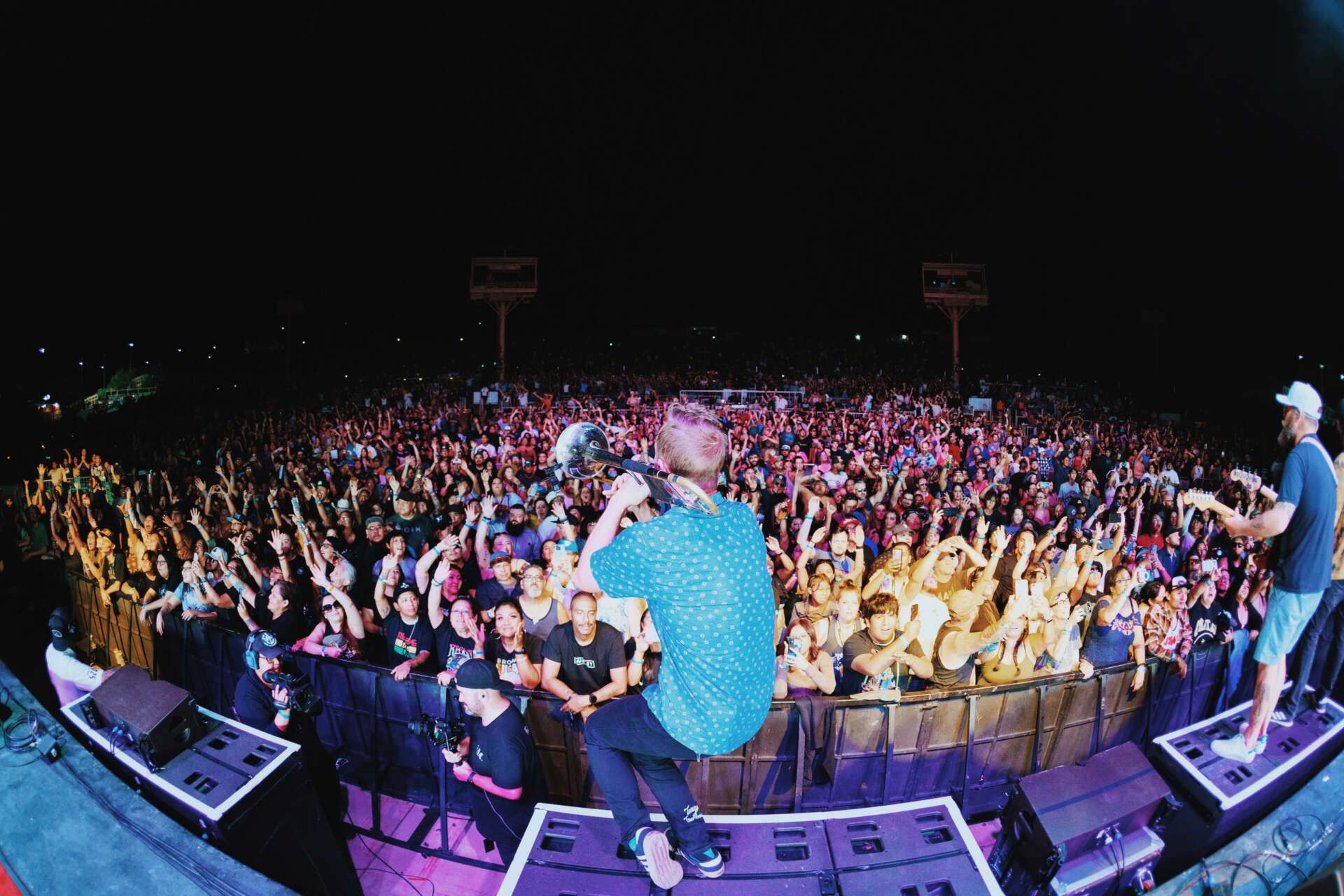
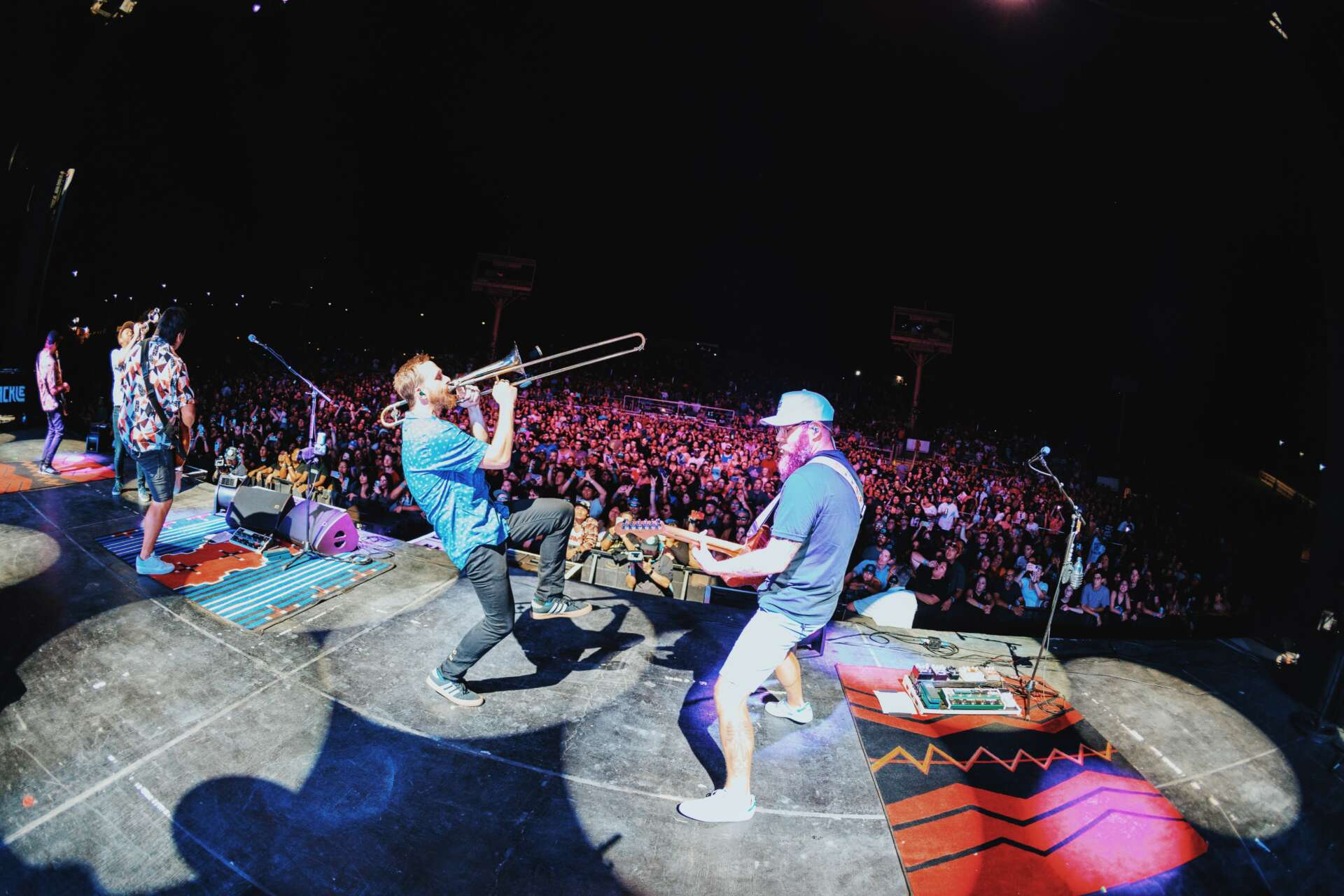
What’s the most rewarding aspect of being a creative in your experience?
There is a very real connection that music brings to people. As a live performer, when I go on stage and interact with the people the connections we have are everything to me. I can literally see the joy that I bring to people and they send that energy right back to me. I feel that energy every time I go on stage and there isn’t a show that goes by where I live in that moment fully and feel that human connection. THAT is the most rewarding part of being an artist.
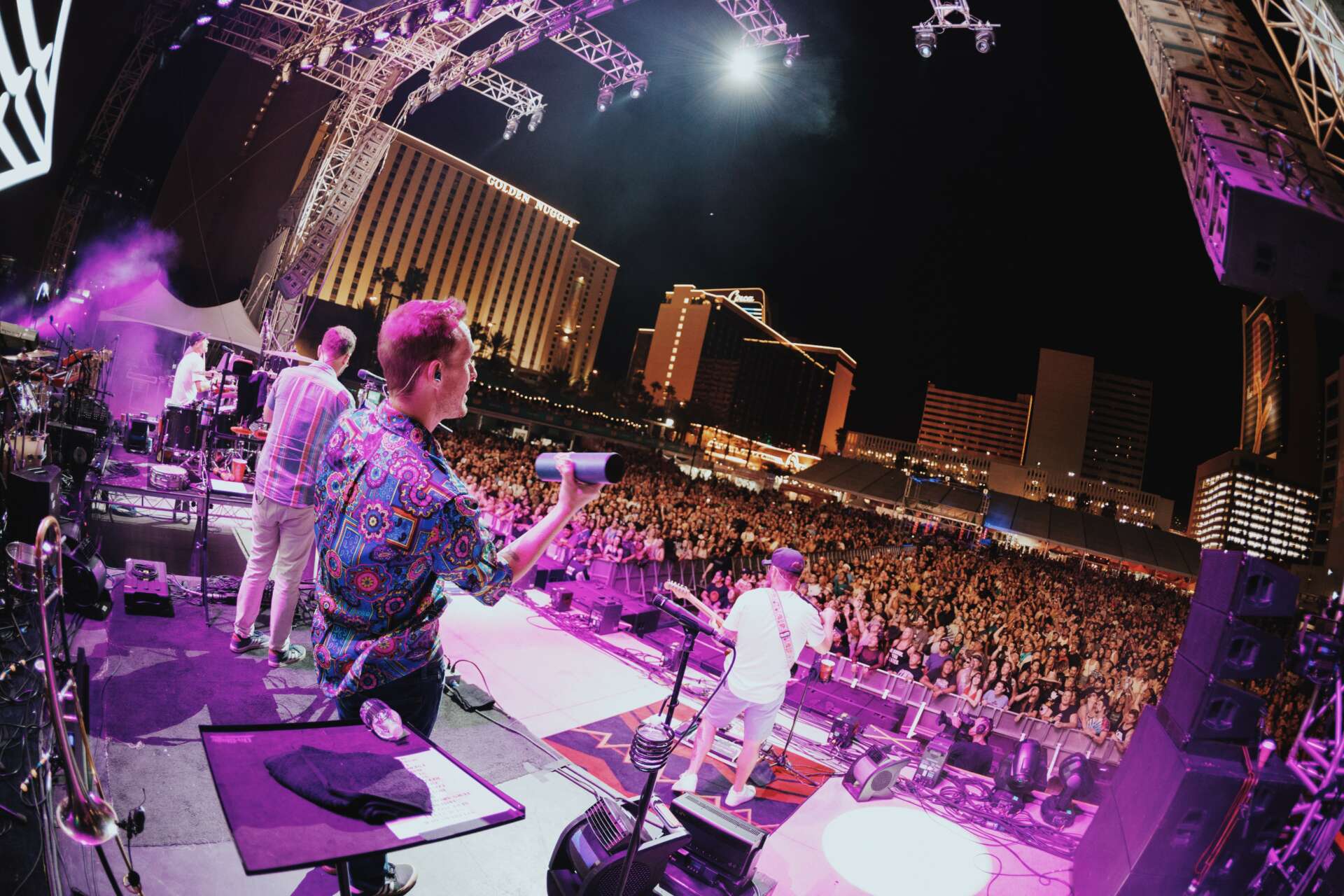
Do you think there is something that non-creatives might struggle to understand about your journey as a creative? Maybe you can shed some light?
I think the two terms creative and non creative diminish the complexity of the human experience. Every single person has some sort of artistic calling. Whether its song, dance, cooking, interior design, or even if you sing in the shower and it makes you feel good. I am one of the very lucky few who have tapped deep into my artistic abilities at a young age. Our society classifies creatives and non creatives separately because of the rigid and structured corporate workplace that has become so standardized in the world we know. This in turn makes it easier to control a workplace and focus attention on the desired outcomes. We develop protocols for people to follow which make the probability of success higher. This becomes a mathematical game and makes people feel comfortable in tried and true routine. Human beings crave this structure. We need it from the time we develop the awareness of our circadian rhythm just months into our journey of life.
“Creatives” have a thought process that continually breaks out of the box of protocol that the structured corporate world needs. In this way we develop different neural pathways for problem solving. This allows for us to directly apply this way of thinking to our artistic calling. The sense of fear of failure is there but it feeds into the artistic pursuit of “perfection.” This feeds into our art. “Non creatives” thrive in structured environments narrowing the way our brain problem solves and thinks “outside the box.” The sense of fear of failure is diminished and in this way supplies us with a sense of calm but by diminishing this emotion we don’t push ourselves as human beings.
There is no difference between a creative or non creative, its about embracing all of our emotions and expressing them through an outlet that supplies us with a sense of fulfillment. So if you are locked into the 9-5 pick up a hobby and Play chess, cook that meal, paint that white wall in your living room, decorate your house with ALL the plants, go and hike naked, live the human experience unhindered. You only live once and I truly believe we are all artists at heart.
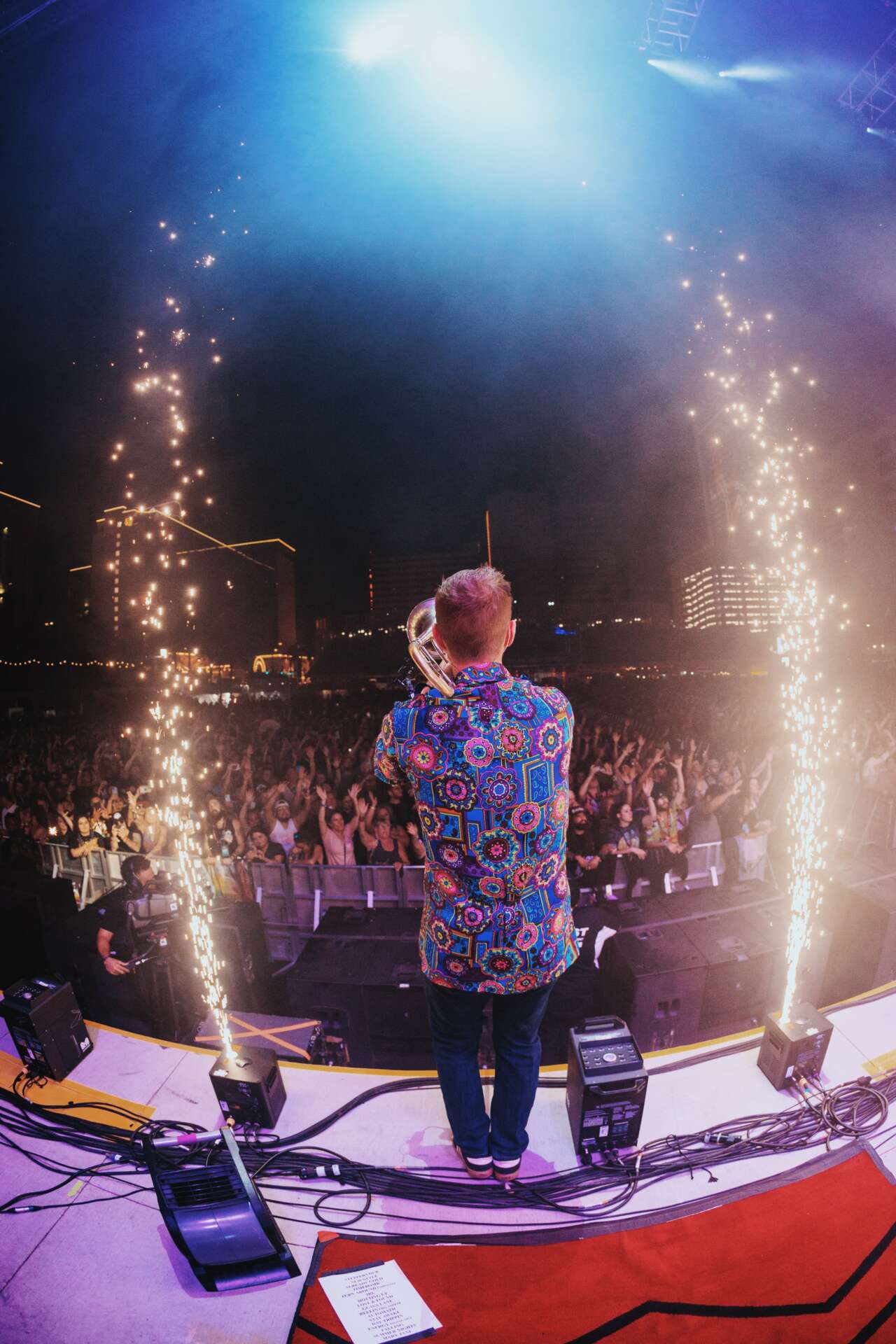
Contact Info:
- Instagram: Tonytrombone
Image Credits
Instagram @chrisfiq


